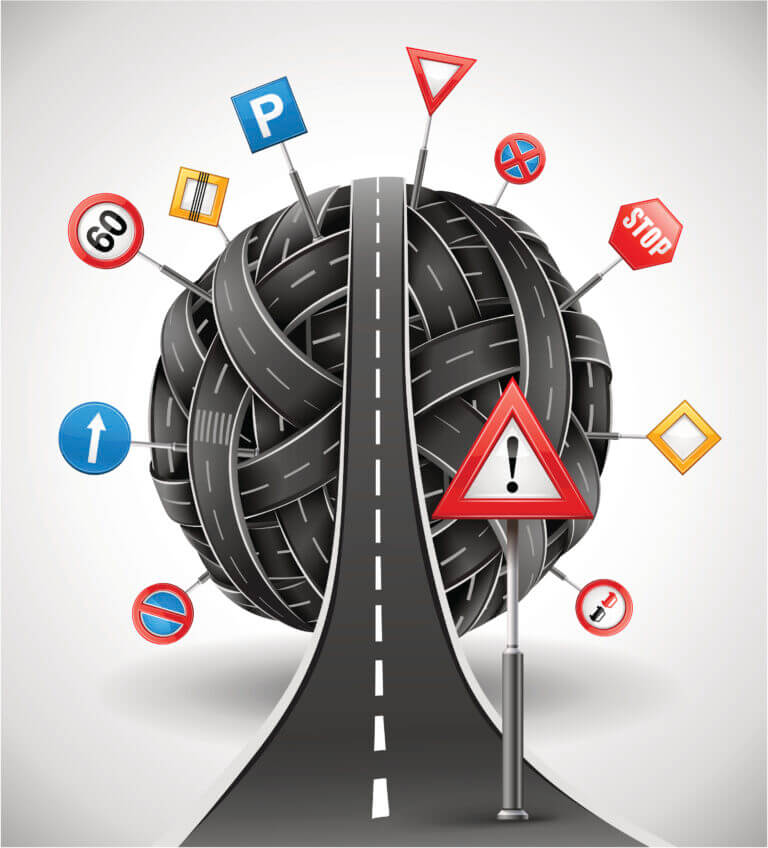In the modern era, our cars have become more than just modes of transportation – they’re data-generating machines, leaving a digital trail every time we hit the gas. This data, captured by various vehicle tracking devices and tracking systems, offers a wealth of information about our movements, driving habits, and even vehicle health. But how does vehicle tracking data work? Why is it important? And, perhaps most intriguing, how can it be used in court? This article unravels the mysteries of this digital breadcrumb trail, exploring its intricacies and potential applications.
Unveiling the Mechanism – How Vehicle Tracking Data Takes Shape
The magic of vehicle tracking data lies in the interplay of several technologies. The core players are:
Tracking Devices: These devices, either factory-installed or aftermarket add-ons, come in various forms like GPS trackers, OBD-II readers, and cellular modules. They continuously collect data about the vehicle’s location, speed, acceleration, fuel consumption, and even engine diagnostics.
Data Transmission: Collected data is transmitted via cellular networks or satellite connections to secure central servers. This real-time or periodic transmission ensures constant access to the most current information.
Data Storage and Analysis: Servers store the vast amounts of data, making it accessible for analysis and visualization. Advanced software tools then convert raw data into meaningful insights, generating reports, maps, and charts that tell the story of the car’s journey.
The Treasure Trove of Applications – Why Vehicle Tracking Data Matters
The applications of vehicle tracking data extend far beyond simply finding a lost car. Here are just a few of its vital uses:
Fleet Management: Businesses with vehicle fleets leverage tracking data to optimize routes, monitor driver behavior, improve fuel efficiency, and ensure timely deliveries. This translates to cost savings, increased productivity, and enhanced service quality.
Personal Safety and Security: Tracking data can provide peace of mind, allowing individuals to monitor their car’s location remotely, receive theft alerts, and even track loved ones during journeys. This data can also be crucial evidence in case of theft or accidents.
Insurance Optimization: Telematics-based insurance programs utilize driving data to personalize premiums based on individual driving habits. Safe driving translates to lower premiums, encouraging responsible behavior and potentially reducing accidents.
Traffic Management and Urban Planning: City authorities can analyze aggregated tracking data to understand traffic patterns, identify congestion hotspots, and optimize traffic light timings. This can lead to smoother traffic flow, reduced emissions, and improved transportation efficiency.
From Dashboard to Dais – How Vehicle Tracking Data Takes the Stand
The legal world has embraced vehicle tracking data as a valuable form of evidence. In a court setting, tracking data can be used for various purposes, including:
Admissibility: Courts generally require proper installation, calibration, and data security measures to ensure the accuracy and integrity of the data before accepting it as evidence.
Criminal Cases: Tracking data can play a crucial role in theft investigations, providing proof of location, movement patterns, and even time stamps that can help build a case against the accused.
Civil Cases: In accident cases, tracking data can help reconstruct the events leading up to the collision, determine speed and fault, and support insurance claims.
Family Law: In child custody disputes, tracking data can be used to monitor parental travel patterns and ensure compliance with court orders regarding child visitation.
Ethical Considerations – Navigating the Privacy Minefield
While the benefits of vehicle tracking data are undeniable, ethical concerns around privacy remain. Here are some critical considerations:
Data Ownership and Sharing: It’s crucial to understand who owns the tracking data, who has access to it, and under what circumstances it can be shared. Individuals should always have control over their data and be informed about its usage.
Data Security and Encryption: Robust security measures are essential to protect sensitive tracking data from unauthorized access, breaches, and misuse. Secure data encryption and responsible data handling practices are paramount.
Balancing Efficiency and Privacy: Striking a balance between the benefits of tracking data and individual privacy is essential. Regulations and legal frameworks need to be implemented to ensure responsible data collection and usage.
The Road Ahead – A Future Paved with Data
Vehicle tracking data isn’t just leaving tire tracks on the digital tarmac; it’s paving a whole new highway towards a data-driven future of transportation, safety, and legal proceedings. Buckle up, because the road ahead is brimming with innovative applications just waiting to be explored.
Predictive Maintenance: No more “check engine” surprises! Imagine a world where your car’s tracking data whispers in the mechanic’s ear, predicting potential mechanical failures before they even happen. Advanced data analysis algorithms could decipher engine diagnostics, wear patterns on sensitive components, and even driving habits to identify impending issues with laser precision. This “pre-emptive strike” approach to maintenance would minimize downtime, extend vehicle life spans, and save drivers both time and money. Think of it as a pit stop before the breakdown, all thanks to the predictive power of your car’s digital breadcrumbs.
Personalized Traffic Routing: Stuck in the daily gridlock blues? Say goodbye to static navigation apps and hello to dynamic routing informed by real-time tracking data and AI. Imagine your car seamlessly weaving through the traffic arteries, not only based on current congestion but also factoring in predicted disruptions, weather patterns, and even your personal preferences for scenic detours or speedy bypasses. This tailored traffic guidance wouldn’t just ease your frustration; it would optimize the entire traffic flow, reducing emissions, saving fuel, and turning your commute into a zen experience.
Pay-per-Mile Insurance: Ditch the one-size-fits-all approach to insurance premiums! In the future, your driving habits, meticulously captured by your car’s tracking data, could become the key to unlocking personalized insurance rates. Think of it as a reward system for safe driving. Every cautious turn, every respect for speed limits, translates into lower premiums, incentivizing responsible behavior and potentially reducing accidents across the board. No more subsidizing the daredevils and speed demons; the road to more affordable insurance could be paved with responsible driving data.
Beyond the Horizon: But the possibilities don’t stop there. Imagine vehicle tracking data contributing to smarter city planning, enabling authorities to analyze traffic patterns and optimize infrastructure investments. Think of it as urban planning informed by the collective movements of its citizens, leading to smoother commutes, reduced pollution, and even safer streets. The potential applications of vehicle tracking data are like uncharted territories on the digital map, just waiting to be discovered and explored.
As we navigate this data-driven landscape, it’s crucial to remember the importance of ethical considerations. Data security and privacy remain paramount, and regulations need to evolve alongside the technology to ensure responsible data collection and usage. But with a focus on transparency, trust, and ethical implementation, the road paved with vehicle tracking data could lead us towards a future of safer, smarter, and more sustainable transportation. So, get your tires pumped and your digital compass calibrated, because the future of transportation is here, and it’s powered by the data we leave behind every time we hit the gas.



